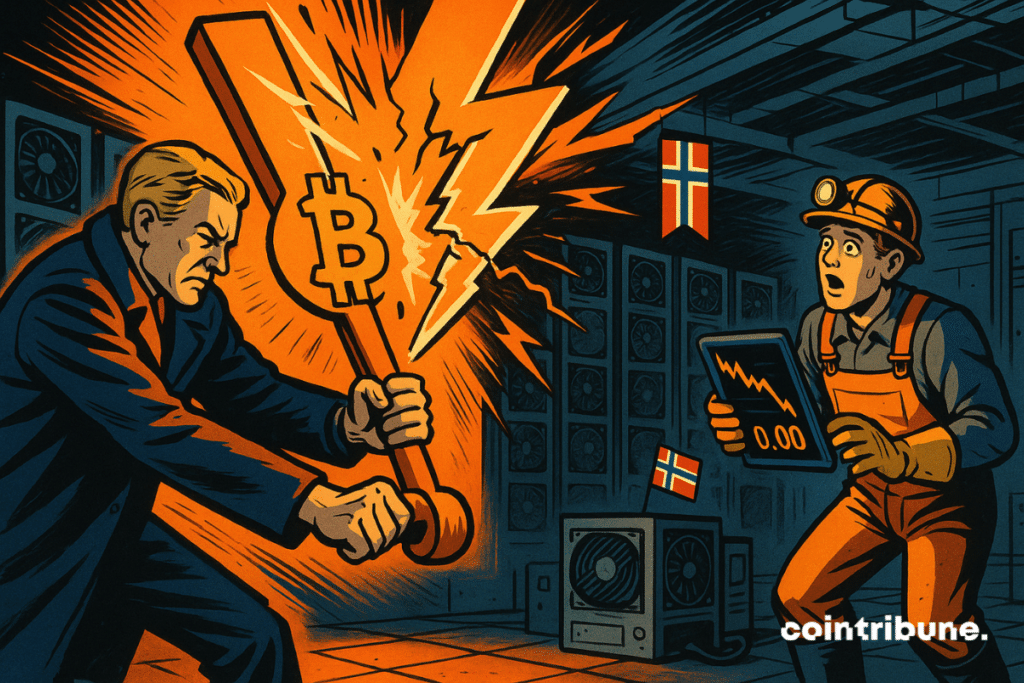Norway Slams the Brakes on Bitcoin Mining: What’s Next for Crypto’s Arctic Frontier?
Norway's once-booming Bitcoin mining scene just hit an iceberg. The Nordic nation—long a haven for cheap hydropower and crypto cowboys—is pulling subsidies and tightening regulations. Here's why the party's over.
Green energy, grey future
Politicians claim they're protecting the grid and prioritizing 'societally beneficial' electricity use. Translation? Mining operations now face market-rate power costs—a death knell for margins already thinner than a trader's patience during a bear market.
The great miner migration begins
Expect rigs to flee to Kazakhstan or Texas faster than a DeFi rug pull. Norway's move leaves 1.4% of global hash rate in limbo—proof that even in crypto's decentralized utopia, governments still hold the kill switch.
Bonus jab: Meanwhile, traditional finance institutions will no doubt celebrate with $20 coffees—finally a sector with worse energy optics than private jets.

In brief
- Norway could temporarily ban new cryptocurrency mining centers starting autumn 2025.
- The government believes energy should be redirected to uses deemed more useful.
- Bitcoin, Dogecoin, and other proof-of-work cryptos are directly concerned.
- This decision is part of a global crackdown trend, following China and the US tax pressure.
A government offensive against the Bitcoin mining industry
The Energy Minister, Terje Aasland, has formalized the Labour government’s position: this is a major turning point in Norway’s energy strategy.
This measure mainly targets the most energy-consuming technologies, especially those based on the proof of work mechanism. bitcoin is therefore on the frontline, followed by cryptos like Dogecoin, Bitcoin Cash, or Litecoin, also affected by this increasing regulatory pressure.
This offensive is no accident. As early as 2018, Norway began reducing its support for the mining industry by cutting electrical subsidies. The ban on new projects WOULD mark a significant escalation in this restrictive policy.
However, the government is trying to safeguard technological innovation. “The useful use of blockchain technology and AI is also important,” specifies the official statement.
BTCUSDT chart by TradingViewEnergy challenges disrupting the European balance
The surge in energy prices in Norway is one of the main factors behind this turnaround. The country, once advantaged by its abundant hydroelectric power, is now affected by the European energy crisis.
Interconnection agreements with neighboring countries are gradually turning Norway into the continent’s “battery,” to the detriment of its own consumers.
Facing this pressure, authorities prioritize the “socially useful” uses of electricity. Traditional data centers and AI applications are favored, while the mining industry, seen as speculative, is relegated to the background.
The repercussions extend far beyond Norway’s borders. This decision is part of a global regulatory tightening movement.
China already caused a massive exodus of miners to the United States in 2021. Other European countries are watching the Norwegian experience closely.
Paradoxically, this regulatory pressure comes while the American industry itself is going through a major crisis. Archaic tax rules and tariffs under the TRUMP administration financially squeeze operators across the Atlantic.
Maximize your Cointribune experience with our "Read to Earn" program! For every article you read, earn points and access exclusive rewards. Sign up now and start earning benefits.

